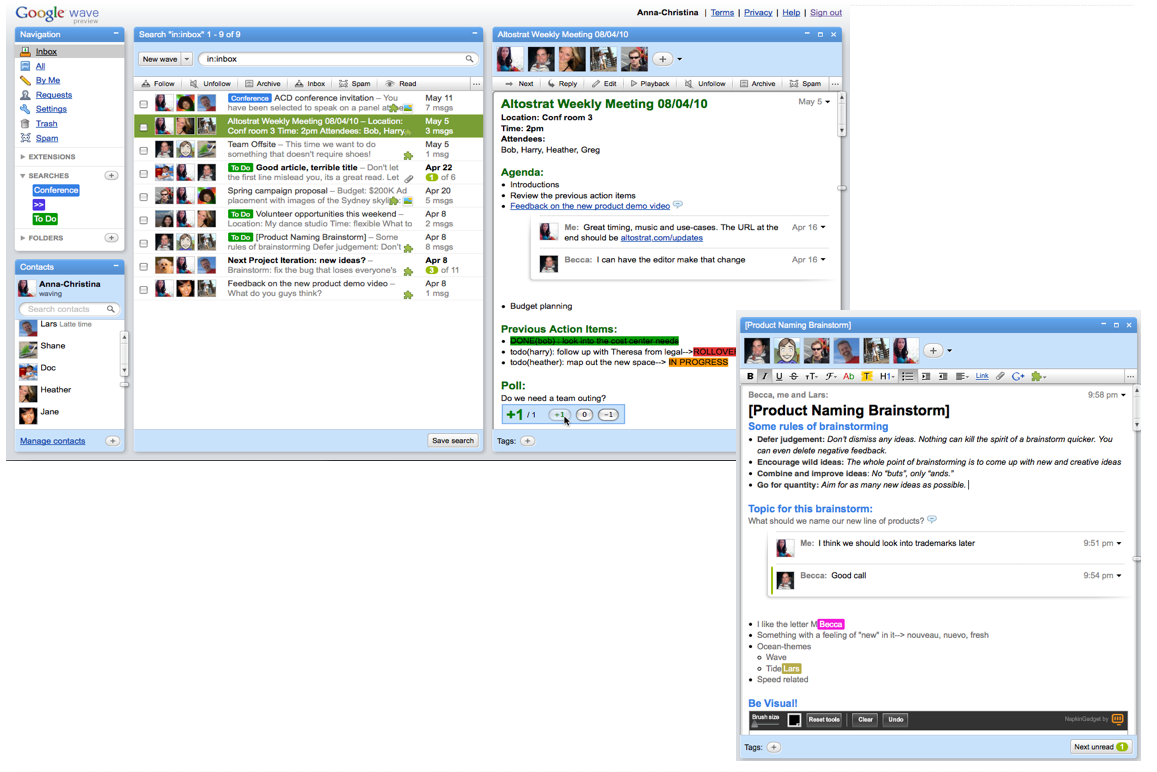Google I/O: Wave's biggest challenge is the learning curve

A year ago, when Google offered a sneak peek at a new collaboration and communications tool/platform called Wave, there was a bit of excitement around it. Then, rather quickly, that excitement turned into confusion, frustration and, eventually, abandonment - at least for me.
Today, with the company's "re-introduction" of Wave - which has been beefed up from its earlier version - there's still some confusion. But that's largely because Wave is something new and different- and the jury is still out on whether that's a good thing or a bad thing.
Consider the different Web-based products that Google has introduced in the past. Google Docs was a different form of using productivity software - namely Microsoft Office - that we were already familiar with. That took some of the learning curve sting out of the switch to Google Docs and Google Apps. Even though there were some key differences between the products, there was a level of familiarity already there. Same goes with Sites, GMail and even Maps.
That's not the case with Wave.
During a press Q&A session, members of the Wave team also seemed to struggle with a clear explanation of what Wave is and does. That's understandable because there's a lot of different things happening in Wave. But if Google expects Wave to take off, it's got to up its game on helping users understand its potential.
The company seems to realize that there's a usability issue that needs to be addressed. Google will have to "show" people how to use Wave - through videos, tutorial sessions and case studies. But will that be enough?
On the surface, I like what Wave is trying to do. I hate e-mail as a collaboration tool and even IM is hit-or-miss. But when that Wave interface lands on my screen, I admit that I'm not sure what to do with it.
Hopefully, over time, that will change.
More from Google I/O: